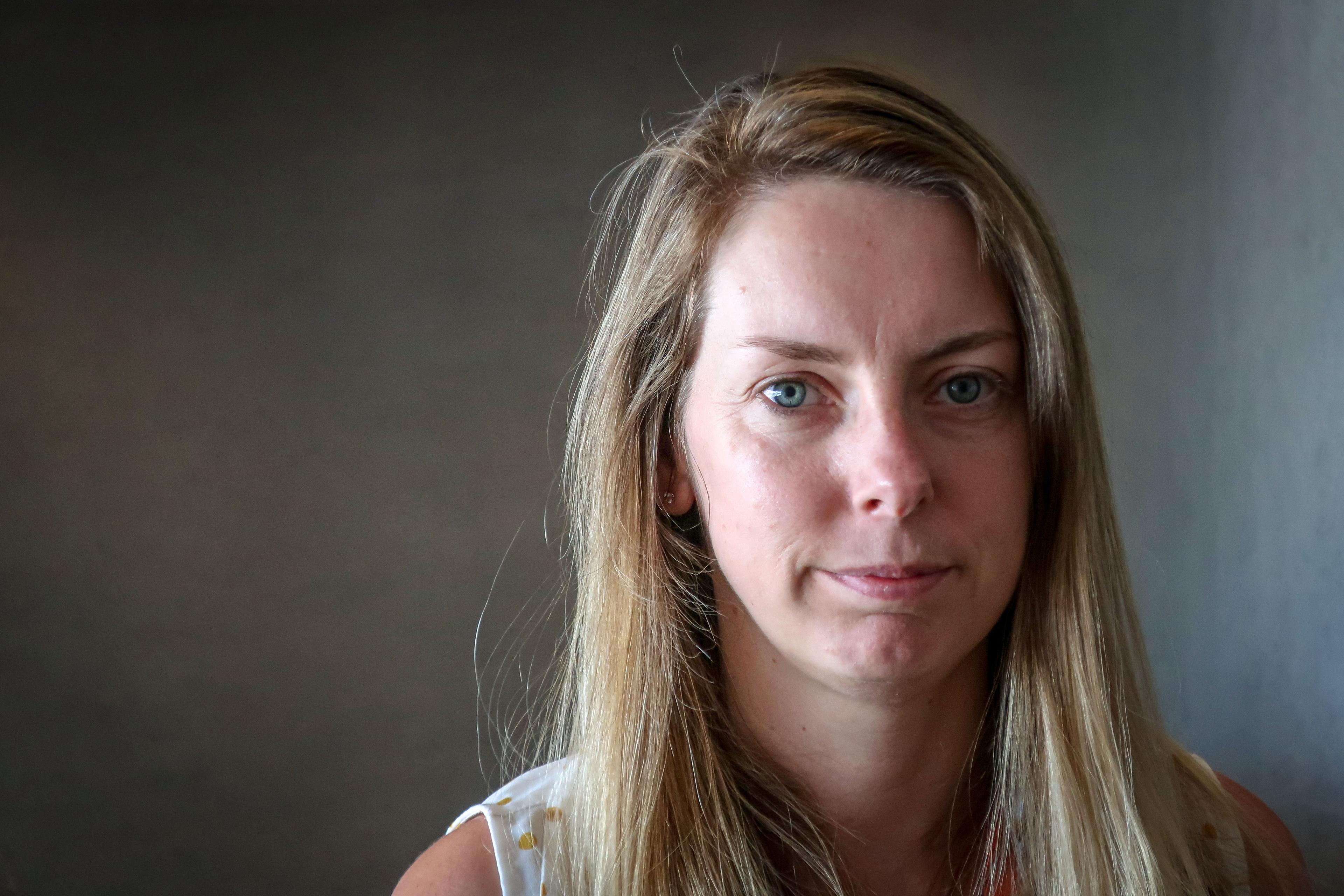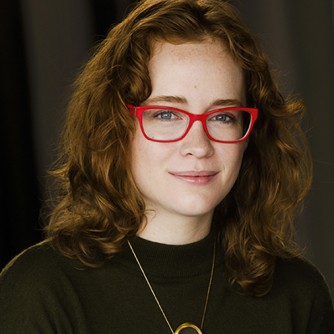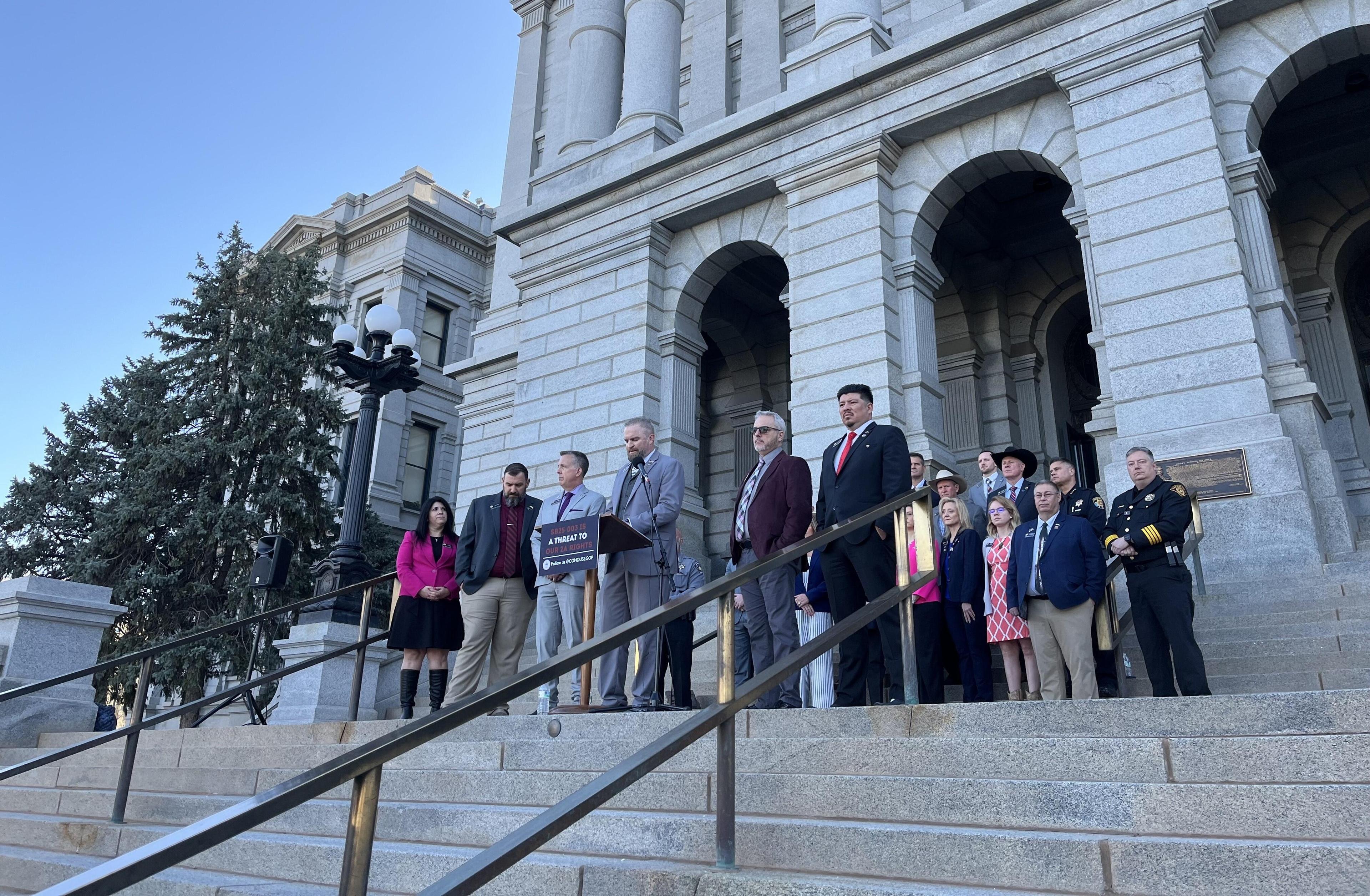
A Boulder climate scientist was catapulted onto the national stage in what she describes as a fight between scientific integrity and political interference.
Maria Caffrey alleges she lost her job with the National Park Service because she refused to eliminate mentions of human-caused climate change from a report. Now, she is suing the Trump administration, and she also testified before Congress last Thursday.
It started with Caffrey’s study on the impact of climate change on coastal National Parks.
“North Carolina, Cape Hatteras, Wright Brothers, all of those. And then I also wanted to flag ... some areas that you may not even think of as being terribly vulnerable. But Washington, D.C., for example, could be really vulnerable to a storm surge if that ever made its way up the river,” she said.
The three-year project had wrapped and Caffrey was on maternity leave in early 2018 when a colleague tipped her off in an email that her coastal parks report was being edited without her permission or knowledge.
The target of the edits? All mentions of human-caused climate change. Earlier drafts showed that a Park Service official had crossed out the word “anthropogenic” — which means related to people — in five places, and three references to human activity causing climate change were also removed.
She investigated and found that the associate director of the National Park Service was behind the changes. In a meeting with the associate director, Caffrey said he told her that if the mentions to human-caused climate change weren’t removed, he could be replaced in his position.
The National Park Service has not responded to Colorado Public Radio’s request for comment.
Also in the meeting was the head of the Climate Change Response Program, Caffrey said, who told her the program could be shut down because of the report as well.
“So clearly there was a lot of fear in the room about what that could mean, what kind of punishments they could receive from the Trump administration,” Caffrey said.
During that time, Elizabeth Shogren, a reporter with the investigative news outlet the Reveal, connected with Caffrey. The two had spoken years ago when the coastal parks study had just started, and Shogren noticed the report was overdue.
An ensuing exchange between the National Park Service and Shogren led to her file Freedom of Information Act and Colorado Open Records requests. She began reporting on Caffrey’s saga, and the pressure led Park Service leadership to reverse their decision.
About 10 of the references stayed in the study, which came out in May. But the victory was short-lived.
“Unfortunately, after that, I experienced a lot of retaliation in my position,” Caffrey said.
The National Parks Service forced her to take an internship position with a significant pay cut, and also work on projects unrelated to her Ph.D.
“And then it finally ended with the National Park Service saying that they didn't have the funds to continue my position — even though, after, I offered to work as a volunteer, and they refused to take me on even as a volunteer,” she said. “For free.”
“I was completely washed out.”
The Trump administration’s stance against referencing human-caused climate change has long been noticeable. Since 2016, the administration has removed a quarter of all mentions of climate change from federal websites, according to an analysis from the Environmental Data & Governance Initiative.
Caffrey believes the proposed censorship to her report is part of the same movement in the administration.
“I think it's part of the Trump administration's agenda to say that humans aren't the cause of climate change because that, by extension, implicates industry, and we would have to start making changes in the way that we are putting out CO2, carbon dioxide and other greenhouse gases,” she said.
In lieu of “climate change,” the federal government has used "energy independence," "resilience" and "sustainability." But Caffrey said those are empty words.
“These aren't terrible words as long as you're backing it up with something that's reducing your greenhouse emissions so that we can reduce impact on climate change in the future,” Caffrey said.
Caffrey said she isn’t asking for much in the lawsuit, primarily for the people who tried to delete parts of her report to receive disciplinary action. There is the question of money in the suit, but no suggested amount.
“Money was never really the point of the lawsuit,” Caffrey said. “The point of the lawsuit is to get on the record and show what the Trump administration is doing to scientists and that that's not OK. And so I think it's important that we stand up and we fight back.”
She acknowledges that the legal action could make her harder to employ. But Caffrey is unsure whether she wants to be employed in a federal office again, and she hopes the lawsuit highlights her integrity and belief in science.
“I'm unemployed now. I had to take my daughter out of day care. This has had a significant impact on my career, on my well-being,” she said. “The whole reason I went to Washington, D.C., was to try and protect other scientists out there. We need stronger scientific integrity protections.”
CPR's Anthony Cotton contributed to this report.
Want more climate solutions from Colorado Public Radio? Sign up for our free climate e-mail newsletter.









